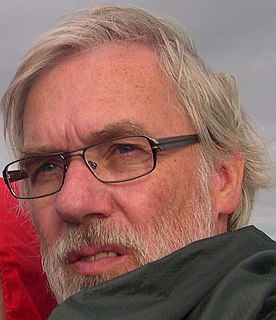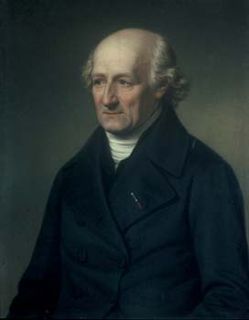 W
WSigurd Bergmann is a German-Swedish theologian and scholar of religion. He is a professor at the Department of Philosophy and Religious Studies of the Norwegian University of Science and Technology in Trondheim, and an alumni fellow of the Rachel Carson Center for Environment and Society at the Ludwig Maximilian University of Munich.
 W
WCarl Christian Clemen, best known as Carl Clemen, was a German theologian and religious historian. He was a member of the history of religions school.
 W
WGeorg Samuel Dörffel was a German theologian and amateur astronomer. Both the lunar crater Doerfel and the minor planet 4076 Dörffel are named in his honour.
 W
WBenedikt Paul Göcke is a German philosopher and theologian. He is University Professor for the Philosophy of Religion and Philosophy of Science at the Catholic Theological Faculty of the Ruhr University Bochum and an associate member of the Faculty of Theology and Religion at the University of Oxford. His research includes theoretical, practical and historical philosophy and can be divided into three main areas: philosophy of science and metaphysics, transhumanism and ethics of digitization, and German Idealism, in particular the philosophy of Karl Christian Friedrich Krause (1781–1832).
 W
WFrank Heinrich is a German theologian, social pedagogue and politician of the Christian Democratic Union (CDU).
 W
WSamuel Gottlieb Rudolph Henzi, was a Swiss linguist, Professor at the University of Tartu on the Chair of Exegetics and Oriental languages, the Dean of the theological faculty; head of the Tartu Branch of Russian Bible Society.
 W
WJohannes Hoffmann von Schweidnitz was a Roman Catholic theologian, Professor of Theology and Rector at both Prague and Leipzig Universities, and served as Bishop of Meissen from 1427 until his death.
 W
WJohannes Leisentritt, also Johann Leisentrit was a Catholic priest, dean in St. Peter in Bautzen and administrator of the Diocese of Meißen, responsible for Lusatia. He is known for publishing a 1567 hymnal.
 W
WMichael Lilienthal was a German theologian. He was born at Liebstadt, in Prussia, September 8, 1686. He studied theology at Königsberg and Jena, and became professor in the University of Rostock. He afterwards visited Holland, where he studied philology and archaeology, and after his return was for some years professor at Königsberg. In 1714 he became assistant librarian of that university, and in 1719 was appointed deacon of one of the churches at Heidelberg. He was made member of the Academy of Berlin in 1711, and of that of Strasburg in 1733. He died at Königsberg January 23, 1750.
 W
WJohann Georg Neumann (1661–1709) was a German Lutheran theologian and church historian.
 W
WWilhelm Heinrich Neuser was a German Protestant theologian, church historian, professor and a leading scholar in John Calvin research, a founder of International Congress on Calvin Research.
 W
WFriedrich Philipp Immanuel Niethammer, later Ritter von Niethammer, was a German theologian, philosopher and Lutheran educational reformer.
 W
WChristian Franz Paullini was a German physician and theologian.
 W
WChristian Reineccius was an 18th-century Saxon theologian.
 W
WCaspar Erasmus (Erich) Schieler was a German theologian, church historian and priest in the late 19th century and early 20th century. According to documents provided by Mainz Cathedral and the Diocesan Seminary, Schieler studied philosophy and theology at the Episcopal Seminary in Mainz, receiving the Doctor of Divinity degree. Schieler first served as a priest at the age of twenty-five at Mainz, Cathedral ordained under Bishop Wilhelm Emmanuel von Ketteler in the year 1876. Due to the Kulturkampf, Schieler was interrogated by the German government and forced to pastor his parish in secret, to avoid further attention. While secretly pastoring in Weisskirchen, Schieler began working on his dissertation: Magister Johannes Nider, for which he received the degree of Doctor of Theology, Magna cum Laude in Würzburg, Germany in the year 1886. Schieler then become the Professor of Moral Theology at Diocesan Seminary of Mainz in Baden-Württemberg. After breaking from the Catholic Church and converting to Protestantism, Schieler continued writing books and became a pastor in the German Evangelical Synod of North America, which later merged into the United Church of Christ, a mainline Protestant Christian denomination, with historical confessional roots in the Reformed, Congregational and Lutheran traditions. Schieler served as a Professor of theology and Latin American and German language and literature at the Mission House College, which later became Lakeland University. At the request of the Educational Department, Schieler later took up a teaching position at Redfield College, teaching theology in Redfield, South Dakota. Schieler was then called upon by the German Evangelical Synod of North America, to teach and preach in communities in Hartsburg, Missouri, Hamel and Johannisburg, Illinois and Marion, Wisconsin.
 W
WAegidius Strauch was a German mathematician and theologian.